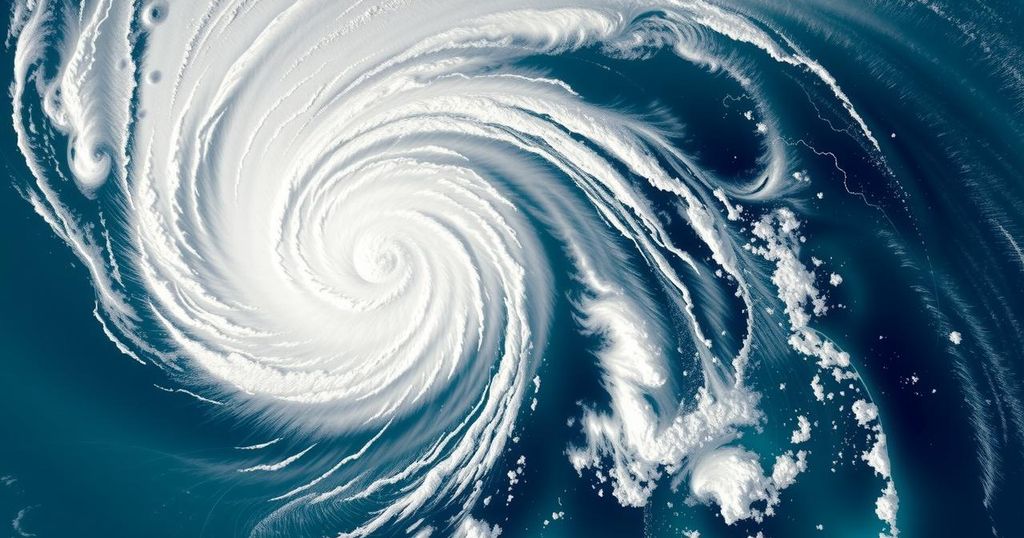Mayotte Endures New Tropical Storm Dikeledi Following Cyclone Chido’s Destruction

Mayotte’s recent tropical storm, Dikeledi, struck the territory shortly after it began recovering from Cyclone Chido, which caused extensive damage and loss of life. Residents were advised to shelter due to warnings of flooding and landslides. The storms underscore the socio-economic vulnerabilities of the region, which is still grappling with the aftermath of previous disasters.
Mayotte, the French territory situated in the Indian Ocean, faced yet another tropical storm on Sunday, following the devastation wrought by Cyclone Chido just weeks prior. Tropical Storm Dikeledi prompted urgent advisories for the local population to seek shelter and stock up on food and water, as it brought heavy rainfall and strong winds. The storm followed Cyclone Chido, which had recently wreaked havoc across the islands, leading to significant loss of life and mass destruction of infrastructure, leaving the territory in dire need of recovery.
The geographical and socio-economic context of Mayotte plays a critical role in understanding the challenges posed by natural disasters. This archipelago, characterized by a dense population of around 320,000 residents—coupled with approximately 100,000 undocumented migrants—faces severe socio-economic challenges, being the poorest region in the European Union. The cyclone season occurs from November to April, and a history of devastating cyclones, including the recent Cyclone Chido, raises concerns about the territory’s resilience and the effectiveness of recovery efforts amidst ongoing climatic hazards.
The challenges faced by Mayotte following the recent onslaught of Cyclone Chido and the subsequent arrival of Tropical Storm Dikeledi highlight the region’s vulnerability to natural disasters. The urgent need for enhanced support and infrastructure resilience has become paramount. Local authorities, along with emergency responders, are actively engaged in mitigating risks to life and property in the wake of these calamities.
Original Source: www.the-journal.com






